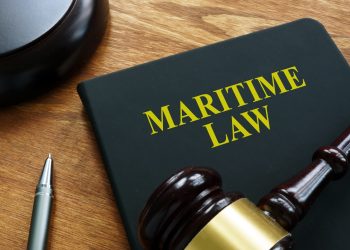A federal jury in Oakland convicted a first engineer of falsifying the Oil Record Book and obstruction of justice, in connection with the intentional dumping of oily bilge water from the tanker Zao Galaxy in February 2019.
According to information by the US Department of Justice, the crew members of the Zao Galaxy dumped oily bilge water into the ocean and then tried to cover up the environmental damage by submitting bogus paperwork to the USCG.
As First Assistant Engineer of an ocean-going commercial tankship, Gilbert Dela Cruz was charged with ensuring the crew would follow the rules, not try to circumvent them. This verdict will serve as a reminder that there are stiff penalties for those who try to violate federal and international rules designed to protect our precious natural resources from polluters,
…said Acting US Attorney Stephanie M. Hinds.
Typically, oily bilge water is collected, stored, and processed to separate the water from the oil and other wastes using a pollution prevention control device known as an Oil Water Separator and an oil-sensing device known as an Oil Content Meter. Only after passing through an Oily Water Separator that limits the amount of oil in water, may oily bilge water be discharged overboard.
[smlsubform prepend=”GET THE SAFETY4SEA IN YOUR INBOX!” showname=false emailtxt=”” emailholder=”Enter your email address” showsubmit=true submittxt=”Submit” jsthanks=false thankyou=”Thank you for subscribing to our mailing list”]
In January of 2019, Dela Cruz, 38, a Philippine national, was the First Engineer of the M/T Zao Galaxy, when it traveled from the Philippines to Richmond, Calif. On February 11, 2019, USCG examiners boarded the Zao Galaxy while moored in Richmond. During the examination, a crewmember passed a note to an examiner requesting a meeting after the inspection so that the crewmember could “tell something” about a “magic pipe” and “damage [to the] marine environment.”
After the inspection and a follow-up investigation, the owner company Unix ultimately admitted that a ship officer directed crew members to discharge oily bilge water overboard, using a configuration of drums, flexible pipes, and flanges to bypass the vessel’s oil water separator.
On February 26, 2020, the company admitted the discharges were done knowingly and that they were not recorded in the oil record book when it was presented to the USCG during inspection. Unix pleaded guilty to one count of violating the Act to Prevent Pollution from Ships.
On March 20, 2020, Judge Tigar sentenced Unix to pay a fine of $1,650,000.00, placed Unix on probation for a period of four years, and ordered the company to implement a comprehensive Environmental Compliance Plan as a special condition of probation.
Dela Cruz denied responsibility, but the jury concluded he aided and abetted a violation of the Act to Prevent Pollution from Ships as he ordered a lower level employee who worked as his assistant to dump oily waste from the ship’s engine room directly into the ocean using a “magic pipe.” Dela Cruz then worked to conceal the dumping by not recording the movement or discharge of oily waste in the ship’s oil record book, which he was responsible for. In addition, he ordered that certain pieces of equipment be repainted and the “magic pipe” be hidden to avoid Coast Guard detection.
As a result, he was found guilty of violating the Act to Prevent Pollution from Ships, one count of obstruction of justice, and one count of obstruction of an agency proceeding. He now faces a maximum of six years’ imprisonment and $250,000 for and three years of supervised release for the pollution count, 20 years’ imprisonment and $250,000 for the obstruction of justice count, and five years of imprisonment and $250,000 for the obstruction of the agency proceedings count.






























































